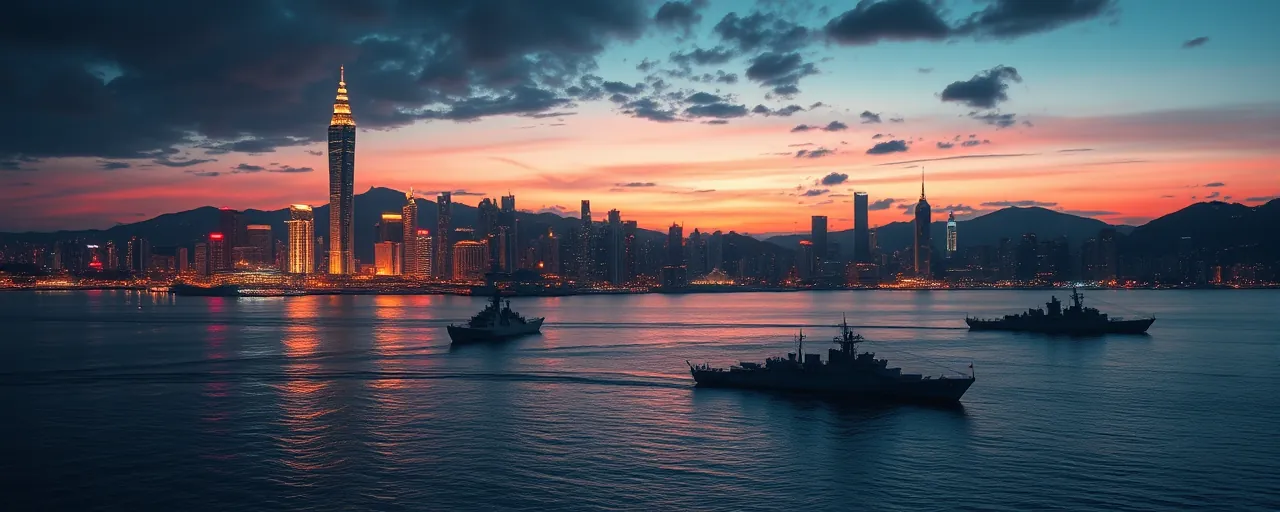A Provocation Too Far
When the G7 foreign ministers issued a blistering statement on April 6, 2025, condemning China’s large-scale military drills around Taiwan, the world took notice. These weren’t routine exercises. They were a calculated flex of power, a simulated chokehold on a democratic island that Beijing insists belongs to it. The ministers, representing Canada, France, Germany, Italy, Japan, the United Kingdom, the United States, and the European Union, didn’t mince words. They called the actions ‘provocative’ and ‘destabilizing,’ a rare unified rebuke that underscores just how high the stakes have climbed.
This isn’t merely a regional spat. China’s aggression ripples far beyond the Taiwan Strait, threatening a fragile global order already battered by economic uncertainty and geopolitical rivalries. For too long, the international community has watched Beijing’s military buildup with unease but little resolve. Now, with landing barges dotting the South China Sea and joint drills simulating blockades, the People’s Liberation Army is signaling it’s ready to act if its demands for reunification aren’t met. The G7’s response marks a turning point, a refusal to let coercion masquerade as strength.
Taiwan, a vibrant democracy of 23 million, stands at the heart of this storm. Its people have rejected Beijing’s ‘one country, two systems’ model, a framework that crumbled in Hong Kong under the weight of broken promises. President Lai Ching-te’s firm stance on sovereignty has only fueled China’s ire, prompting drills that mimic invasion scenarios. Yet the G7’s statement isn’t just about defending Taiwan. It’s about safeguarding a principle: no nation should redraw borders or subjugate others through force.
The Economic Dominoes Waiting to Fall
If China’s actions seem abstract to some, the economic fallout they could unleash is anything but. The Taiwan Strait isn’t just a waterway; it’s a lifeline for global trade. Over $1.4 trillion in goods flows through it each year, and that’s a conservative estimate. Disrupt it, and the world feels the shockwaves. Semiconductors, the tiny chips powering everything from smartphones to cars, are Taiwan’s crown jewel. A blockade or invasion would cripple supply chains, sending industries into chaos and costing the global economy upwards of $2 trillion.
Beijing knows this. It relies on the strait for its own imports, from raw materials to energy. Yet its leaders seem willing to gamble, betting that intimidation will bend Taiwan—and its allies—to their will. The G7 ministers see through this ploy. Their statement ties peace in the strait to ‘global security and prosperity,’ a nod to the interconnected reality of our world. A conflict here wouldn’t just hurt Taiwan or China; it would slam commodity exporters, deepen debt crises in vulnerable nations, and rattle financial markets already on edge.
Contrast this with the tired argument that engaging China economically will temper its ambitions. Decades of trade haven’t softened Beijing’s resolve; they’ve bankrolled it. The People’s Liberation Army’s naval expansion and missile systems didn’t materialize from thin air. They’re the fruits of a strategy that pairs economic might with military muscle. The G7’s call for dialogue isn’t naive appeasement—it’s a demand that China abandon a reckless path that endangers us all.
History backs this urgency. Tensions in the strait have flared before, notably in the 1990s when China fired missiles to intimidate Taiwan’s fledgling democracy. Back then, dialogue and restraint prevailed. Today, with Beijing’s Anti-Secession Law looming and its gray-zone tactics unsettling Japan and the Philippines, the need for a peaceful resolution feels more pressing than ever. The G7’s stance reflects a hard-earned lesson: ignoring aggression only emboldens it.
Taiwan’s allies aren’t sitting idle. Japan has evacuation plans for civilians near Taiwan’s coast. The European Union has voiced strategic concerns. Even ASEAN nations, wary of their economic ties to China, are quietly alarmed. This isn’t about picking a fight; it’s about recognizing that letting China’s provocations go unchecked risks a catastrophe no one can afford.
Dialogue Over Domination
The G7’s insistence on ‘constructive cross-Strait dialogue’ isn’t a platitude; it’s a lifeline. China’s leaders frame Taiwan as a non-negotiable ‘red line,’ but their escalating drills suggest they’re more interested in domination than discussion. The ministers’ statement flips that script, urging Beijing to step back from the brink and engage. It’s a challenge to prove that China’s rise doesn’t have to mean others’ fall.
Some might argue this is futile, that Beijing’s too entrenched to budge. They point to the Chinese Civil War’s lingering scars, to the 1949 split that birthed two Chinas locked in perpetual standoff. True, history weighs heavy. But it also shows progress—cross-strait visits and investments flourished in the 1980s, hinting at what’s possible when tensions ease. Beijing’s current course rejects that legacy, favoring coercion over cooperation. The G7’s united front says that won’t stand.
This isn’t about denying China’s interests; it’s about ensuring they don’t trample everyone else’s. The omission of the ‘one China’ policy in recent G7 statements speaks volumes. It’s a subtle but seismic shift, a nod to Taiwan’s right to exist and participate globally. Supporters of Beijing’s hardline approach might cry foul, claiming this stokes conflict. They’re wrong. It’s China’s unilateral threats—its missiles, its barges—that light the fuse. The G7’s push for peace aims to douse it.
A World Worth Fighting For
The G7’s statement is more than diplomatic boilerplate; it’s a clarion call. China’s actions around Taiwan aren’t just a regional power play—they’re a test of whether might makes right in the 21st century. The ministers’ words carry the weight of nations that know the cost of instability, from trade routes to tech innovation. They’re fighting for a world where dialogue trumps drills, where prosperity isn’t held hostage by one country’s ambitions.
Taiwan’s people deserve that world. So do the rest of us. The G7’s stand isn’t perfect, and it won’t magically resolve decades of tension. But it’s a start, a refusal to let China’s saber-rattling dictate our future. If Beijing won’t listen, the international community must act—through unity, through resolve, through an unwavering commitment to peace over power.
